Jeff Danna is one of the most versatile film music composers these days. He became acclaimed by his meditative style influenced by world music, even though these scores are made for smaller productions. Most of us first met his name in connection with his brilliant score for Resident Evil: Apocalpyse, but he and his brother, Mychael also composed for Terry Giliam's upcoming movie entitled Tideland, which will be released in theatres in March. We asked him about this project, his other solo works and other collaborations with his brother.
You are a Canadian composer, who primarily works for American pictures. Do Canadian Canadian filmmakers relate to the phenomenon of film music differently?
The Canadian film scene is not really a main stream film scene. It's not particularly guided by commercial toughts. In the American film scene there is obviously a large part which is studio driven and profit driven. In the Canadian scene, there isn't really that sect of filmmaking, it's mostly what we would call art films or independent films.
You moved to Los Angeles and started your American career with television series. Your first such work was "Kung Fu". How did you get that job?
Well, just by going for interviews and submitting demos like everybody else. The same goes for Kung Fu, I just got interviewed and played some music. Eventually I was sent for another interview and ended up with the work.
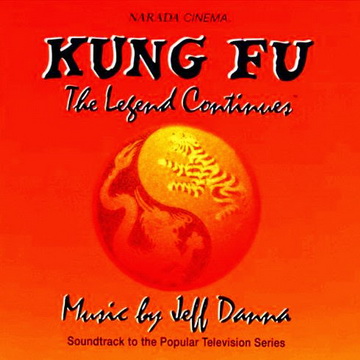 For Kung Fu: The Legend Continues, you've written a very exotic Asian style score, but you're also skilled in other styles (eg. Celtic). How do you find the methods, instruments or soloists with whom you work together to bring us these sounds?
For Kung Fu: The Legend Continues, you've written a very exotic Asian style score, but you're also skilled in other styles (eg. Celtic). How do you find the methods, instruments or soloists with whom you work together to bring us these sounds?I had to make a bunch of phone calls but eventually I found this small ensemble of Chineses musicians who were very good players. They were living in Los Angeles, but only of them spoke English. They were very good however and I wrote the music of the show around that ensemble because I thought that would be the most interesting thing to have real instruments in Kung Fu.
Where does your interest in world music come from?
Well I'm interested in anything that's a little bit different if possible, whether it's pre-Columbian or Celtic instruments. I just like to mix things with the orchestra that's a little bit different if it helps to give the film its own identity. The interest in that lies there for me. The instruments themselves are the means for that end. I have a real love for folk music, ever since I was very young and I was just learning to play my guitar.
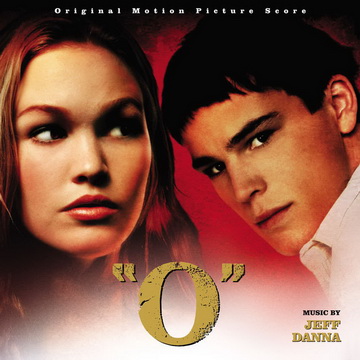 O was a modern re-telling of Shakespeare's Othello. Since it was set in a high school, it was heavily littered with contemporary pop songs as well. How does the presence of these additions influence your work?
O was a modern re-telling of Shakespeare's Othello. Since it was set in a high school, it was heavily littered with contemporary pop songs as well. How does the presence of these additions influence your work?You just have to be conscious of where everything is musically. If you're writing a cue that comes out of a piece of source music or you're writing a cue that goes into a piece of source music, you're making the decision with the director on whether you compose something that blends when the two are together temporarily or if you want it to be sort of jarring. When you have a piece of score and than suddenly a piece of source music, you may want it to be jarring or would like a smooth transition from one to the other. So that decision had to be made with the director on how to handle it. Once you see how you're dealing with it, it's very useful if the source music is already picked out, than you can match the key for the feel you want to reach.
The end of the movie is underscored with "Ave Maria", but the album ends with a track called "To Take A Flight". What is the reason for this difference?
The album itself was not in the particular order, it didn't go in the order of the film. I just put the album togerher to make it as interesting as I could. Here, at the end, "To Take A Flight" is built up from elements that never appeared in the film in that particular light. So "To Take A Flight" was built from elements of a number of different cues particularly one called "Hawk". It's sort of like a suite, I took all the individual elements and than wrote another piece around it.
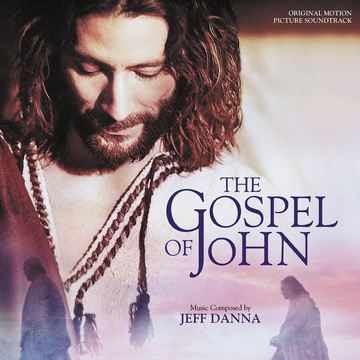 The Gospel of John score is right up there with John Debney's Passion of the Christ, which was nominated for an Academy Award. How does it feel like that your work didn't reach didn't reach so many people even though it touches upon the same story?
The Gospel of John score is right up there with John Debney's Passion of the Christ, which was nominated for an Academy Award. How does it feel like that your work didn't reach didn't reach so many people even though it touches upon the same story?I knew when I was working on my Gospel of John that it was a very small film and not many people would see it. I feel it doesn't really matter when your writing the music, you're gonna write the most interesting and beautiful music you can no matter how big or small the film is and I'm pleased with how Gospel of John turned out.
Your name did not appear in the credits of action movies before. Why were you asked to compose this score to Resident Evil: Apocalypse?
They had a bunch of different guys writing demos and they liked mine the best. So I was picked and off would be the work.
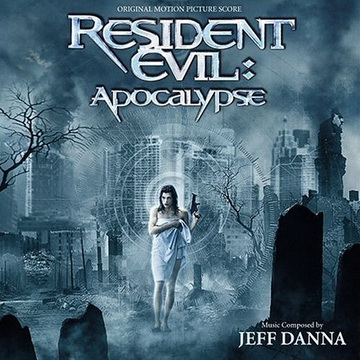 It was surprising to hear Resident Evil: Apocalypse with it's unusually hard-edged style from youm, making it a sort of turning point in you career. Was it a challenge to compose something so different and dinamic? Did you have any help in the field of electronic effects?
It was surprising to hear Resident Evil: Apocalypse with it's unusually hard-edged style from youm, making it a sort of turning point in you career. Was it a challenge to compose something so different and dinamic? Did you have any help in the field of electronic effects?Remember I've done TV for years, six or seven seasons of television when I was in my 20s. I already did all sorts of action music for the small screen so I sort of knew what was going to be involved. I hadn't had the chance to do it with an 85 piece orchestra before that, but I knew what I had to do so it's not as if I've never been there before. I already worked ther for six or seven years.
When you wrote for this sequel, were you influenced by the previous episode either by the movie itself or by the score?
Mostly I've just been interested in what's right for the film itself. That's the most important thing, to satisfy the musical demands of the film and the director. Those are the two things that I can really turn to when writing. If people like it after that, that's great. Of course you have to work for the film and please the director.
After Resident Evil: Apocalypse, it was less surprising to find your name in the credits of Silent Hill, where you adapted Akira Yamaoka's themes from the original Japanese version. What were the filmmaker's ideas?
That's really interesting, because they wanted the experience of the movie to be like the experience of the game. So obviously Akira's music had feature strongly in it. They said there are some areas where we need you to write the music that bridges his music and there'll be some areas where we need to adapt the music to fit the picture better. Than there are some areas where I had to create new things. Right off the bat I knew that it was going to be a faithful adaptation of the game and I thought that was a good idea.
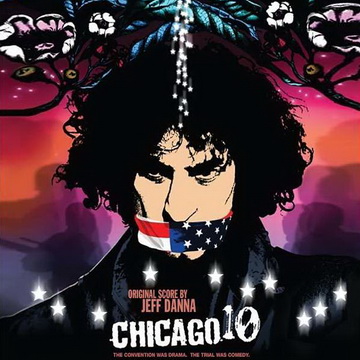 Chicago 10 will be premiered at the Sundance Festival, featuring quite a lot of famous actors. What's the role of music in documentaries?
Chicago 10 will be premiered at the Sundance Festival, featuring quite a lot of famous actors. What's the role of music in documentaries?This is a film I did with a director named Brett Morgen and I've also done a film with him called The Kid Stays in the Picture which was also a documentary although an unusual one. Brett doesn't treat music in his films like a standard documentary. He makes very dramatic documentaries, they are almost like dramatic features. He likes the music to come in and become a major factor in the landscape of the movie. It's very diverse and it changes a lot, but it always plays a key role when it appears.
In 2007, you'll be writing music for the television series Nimrod Nation. Won't it be too time consuming to write for a whole series, which would make it harder to take other jobs?
Nimrod Nation is basically a four-hour mini-series. It was for Brett Morgen again whom I did Chicago 10 for. This is a four-hour miniseries that he did on the Upper Peninsula in Michigan. It's listed as a TV series on imdb, but it's really just eight half-hour or four one-hour episodes, depending on how they run it.
Next year, you'll be working with Richard Attenborough. Closing the Ring will be a romantic drama with Shirley MacLaine and Christopher Plummer. What can we expect from this score?
The picture itself is very Attenborough-like, it's a period piece set in war time. It actually moves from 1944 and 1991 back and forth. It's a love story which I found quite nice.
Previously you mainly produced pieces in a certain meditative style. Is it important to have a well-estabilished background to compose these relaxed works?
Well, I wrote Closing the Ring in London, in the same building where Richard Attenborough's offices was. It wasn't really all that quiet, but you just have to close the door, shut out the world and get into the world of the film. Since the film was set in Belfast, Richard wanted something that was thematically driven from but also reflected the musical lineage of Belfast. He wanted pipes and whistles, so that's what we did for that film.
Your brother, Mychael is also a composer. Were you influenced by his work when you started your career?
Well, I think that because he is older than me and he was here first, people know our last name. But that actually makes it harder because you have to proove that I'm here on my on merits and not just because my last name happens to be his. It makes it harder, I just work very hard and things start to work out.
 You've sometimes worked together with your brother on some scores (for example Green Dragon and Antwone Fisher). Why aren't these collaborations more frequent?
You've sometimes worked together with your brother on some scores (for example Green Dragon and Antwone Fisher). Why aren't these collaborations more frequent?Well, we just did a film last year for Terry Gilliam called Tideland. That was a situation where we basically just wanted to do something together and that film just came up and the filmmakers were open to do it. We like to work together, it's a good combination musically as it seems, we understand each other on a pretty insane level. So we're looking for those opportunities together and we may do it again this year too.
How do these collaborations work? How do you share the workload between yourselves?
Usually we provide the themes and one of us will say "okay, I take the A theme", than the other says "I take the B theme", than the C theme... We just start shovelling things back and forth. In Terry's film, there was a theme that Michael wrote for a cue in the first reel and it was appropriate to use it in a couple of cues in the fourth reel so I took his theme, adapted it and changed it around. There are times I would send him a cue which is still half-finished, he would finish it. Because we have the same scoring program, we can just switch these back and forth.
 You've worked together on two Celtic concept albums (A Celtic Tale and A Celtic Romance) as well. How were these works written?
You've worked together on two Celtic concept albums (A Celtic Tale and A Celtic Romance) as well. How were these works written?I was just finishing working on Kung-Fu and he had just done Exotica, where we just enjoyed working with these other instruments. We were just fiddling around one day and said "There are these grat instruments and the Irish theme, why don't we do some of those?" We hadn't really heard Celtic music that mixed orchestra and folk instruments the way we thought we could make it work. We put those two together and those albums were a lot of fun to do!
Is there any genre you haven't tried yet but would like to try your hand at?
Well, I thing I'd like to do more fantasy, I did a film called A Wrinkle in Time for Miramax and I really enjoyed that. It's a sort of orchestral, fantasy writing. I think that would be something I'd gladly do. But I enjoy everything where you get to work together with good people on a good film. Apart from the genre question, that's what I'd like to do most.
Do you think it is important to keep in touch with fans?
Certainly. One of the things in being a film composer is having this hidden job, the man behind the themes. I think we spend a little too much time sitting in a room by ourselves with this pressure on us and not out in the world interacting sometimes. Certainly I'm interested in any kind of interaction I can get, especially in this job when you're not in the limelight.
Who is your idol among film composers? Do you have a favourite score?
I try to think in terms of favourite scores as opposed to favourite composers. I'd pick Rózsa's score for Double Indemnity, Alfred Newman's score for The Razor's Edge, Herrmann's North By Northwest. I was watching The Natural last week and thought Randy Newman wrote a terrific score for that.
What do you do, when you do not compose for pictures?
Well, I work most of the time... I have an interest in architecture, I like to go on these architectural tours and do a lot of reading. That's just a sideline interest of mind.
To know more about Jeff Danna's work, please visit the composer's official website.
Külön köszönet Tom Kiddnek a közreműködésért.
2007. január 27.
2007. január 27.







